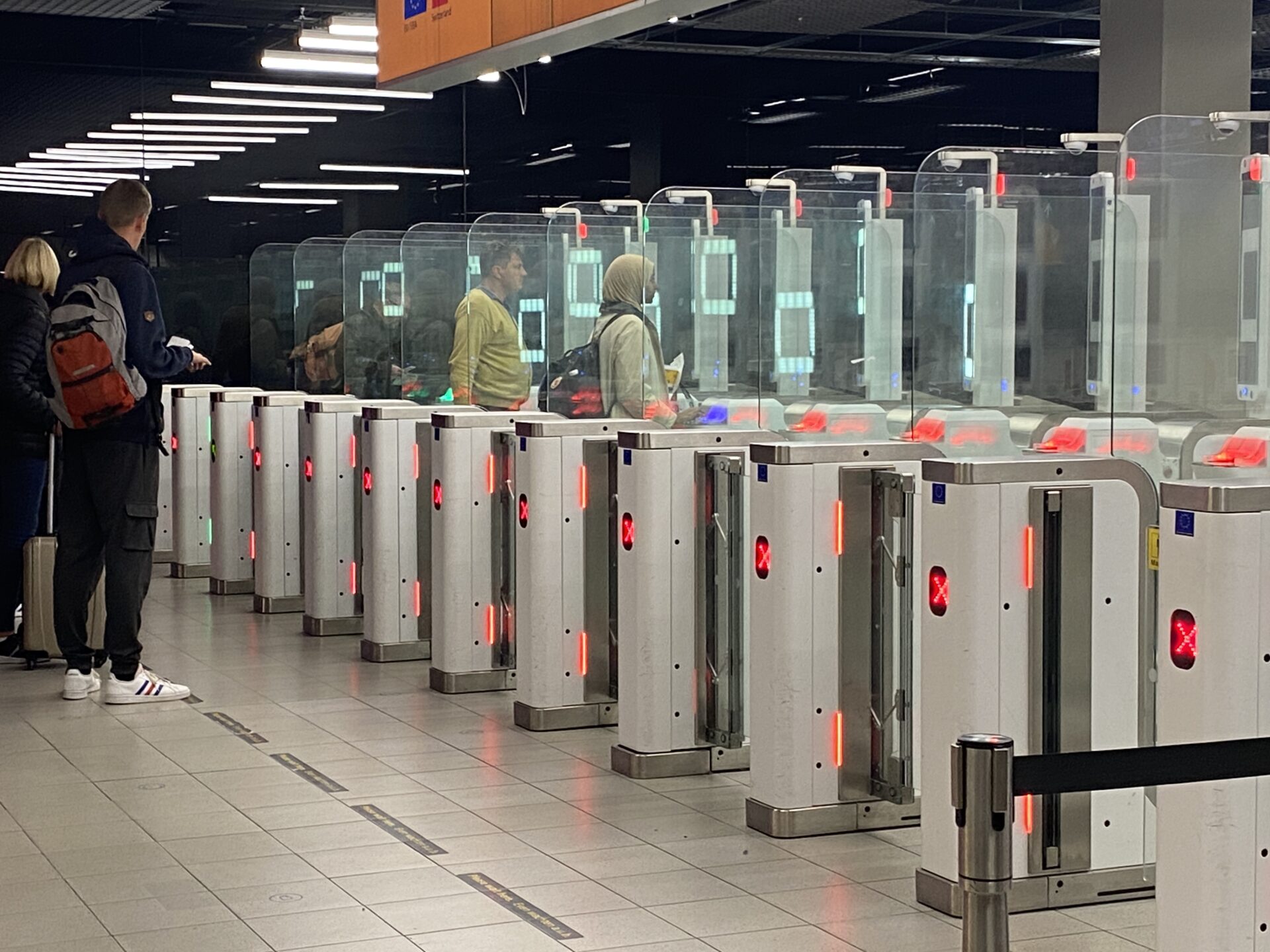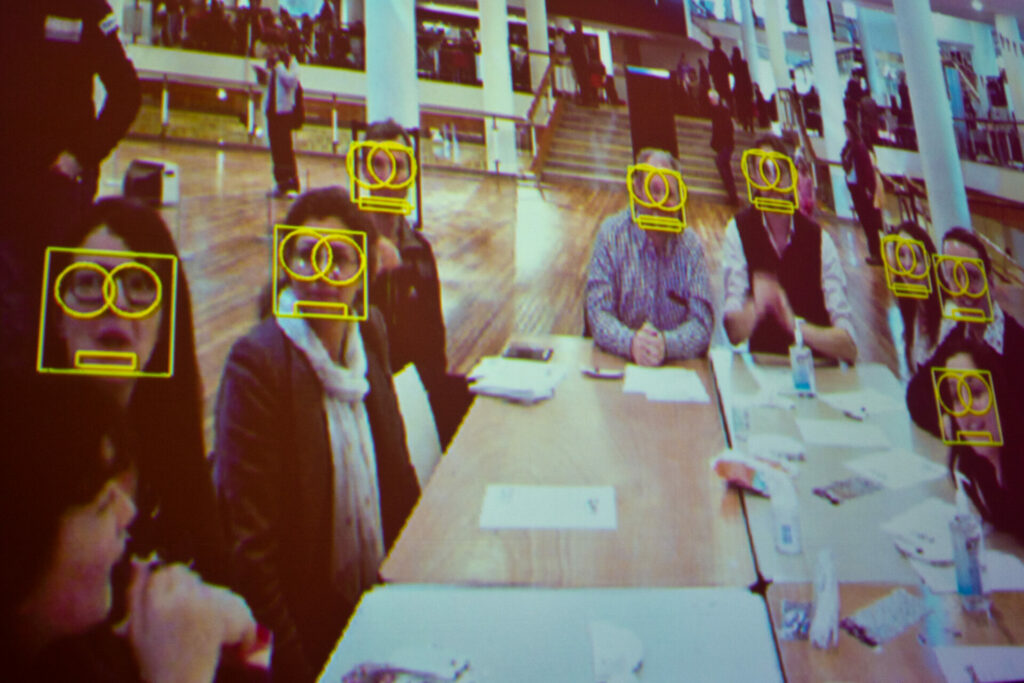In today's technology-driven era, facial recognition software has captured the public's imagination and sparked concerns about personal privacy.
This technology, which allows for instant identification of individuals through photographs, is already a reality, with Clearview, an AI company, playing a prominent role. American investigative journalist Kashmir Hill recently exposed Clearview's widespread database containing facial profiles of countless Western citizens.
Facial recognition operates much like the music app Shazam, but instead of identifying songs, it identifies individuals from photos. If you want to know more about a person you encounter, you can discreetly snap a photo with your smartphone, and - even if it's slightly blurry - specialised AI software can then reveal their identity. Through this practice, Clearview has amassed a vast database of Westerners' facial profiles.
Law enforcement agencies worldwide have eagerly adopted this technology. Hill's book, "Your Face Belongs to Us," explores Clearview as a central figure in the facial recognition landscape, shedding light on its activities. Clearview's clandestine data collection involved scouring social media platforms, accumulating photos of ordinary citizens who unwittingly shared their images on platforms like Facebook and Instagram.

Facial recongition technology in use at Amsterdam's Schiphol Airport. Credit: ProtoplasmaKid/Wikimedia Commons
When Hill exposed Clearview's operations in a groundbreaking New York Times article, it was revealed that several U.S. law enforcement agencies were already using Clearview to compare security camera footage with its extensive photo database, causing nationwide shockwaves.
However, concerns about privacy persist. Hill's inquiries with Dutch police revealed evasive responses similar to those from the New York Police Department, indicating that Clearview's software is used institutionally while allowing law enforcement to maintain plausible deniability.
Facial recognition use in Belgium
Separate to Hill’s investigation, it was revealed in 2021, that the Belgian police had used Clearview AI's facial recognition tool. A Buzzfeed News report disclosed a leaked customer list showing 101 to 500 uses by the Belgian Federal Police.
While the Federal Police initially denied usage, Minister of the Interior Annelies Verlinden later confirmed its use in a Europol task force for victim identification. Subsequent internal investigations revealed limited consultation usage and involvement in Child Focus and international cases. Importantly, such usage was not systematic and violated Belgian law. To date, facial recognition use remains legally unsanctioned in Belgium.
Hill's investigation into Clearview began when she received a tip about the company's activities. Having covered technology and privacy for over a decade, she had long been aware of the looming concerns surrounding facial recognition. Clearview's existence proved that a massive database of photographs identifying strangers was no longer theoretical but a stark reality.
Clearview's origins are also surprising. Founded by individuals with right-wing views, including one with an unsettling interest in eugenics, it emerged during the politically polarised Republican convention in 2016. Hill refrains from framing this as an exclusively right-wing desire, suggesting that the quest for such power transcends political boundaries.
Ethical hurdles
Hill also highlights the transformation of Clearview's CEO, Hoan Ton-That, from creating trivial Facebook quizzes to developing ground-breaking facial recognition technology. Clearview's success hinges on existing AI research and the availability of internet photos, revealing that the primary obstacle is not technical but ethical considerations.
Major tech giants like Facebook and Google possess similar technology but have refrained from introducing it due to privacy concerns and regulatory scrutiny. However, Hill notes that Facebook's ambitions to incorporate facial recognition into augmented reality glasses pose new privacy questions.
Hill believes that entrepreneurs often present their products as inherently beneficial. Clearview, initially designed as a profitable app with a massive user base, later adopted the narrative of assisting law enforcement.
Related News
- AI and privacy collide in Brussels: The debate over facial recognition
- Ryanair accused of misusing facial recognition on customers
Hill's book also explores how facial recognition technology is integrated into daily life in China, including cameras tracking people in pyjamas. In the U.S., it has led to erroneous arrests, as exemplified by a case involving a wrongly detained black American.
In closing, Hill acknowledges the utility of facial recognition in law enforcement but emphasises the need to preserve privacy as a fundamental societal value. She cautions against a world where everyone is treated as a potential suspect, as seen in pervasive surveillance in China. Despite technological progress, Hill remains optimistic, highlighting the impact of privacy laws in Europe and some U.S. states that have restricted Clearview's use.

